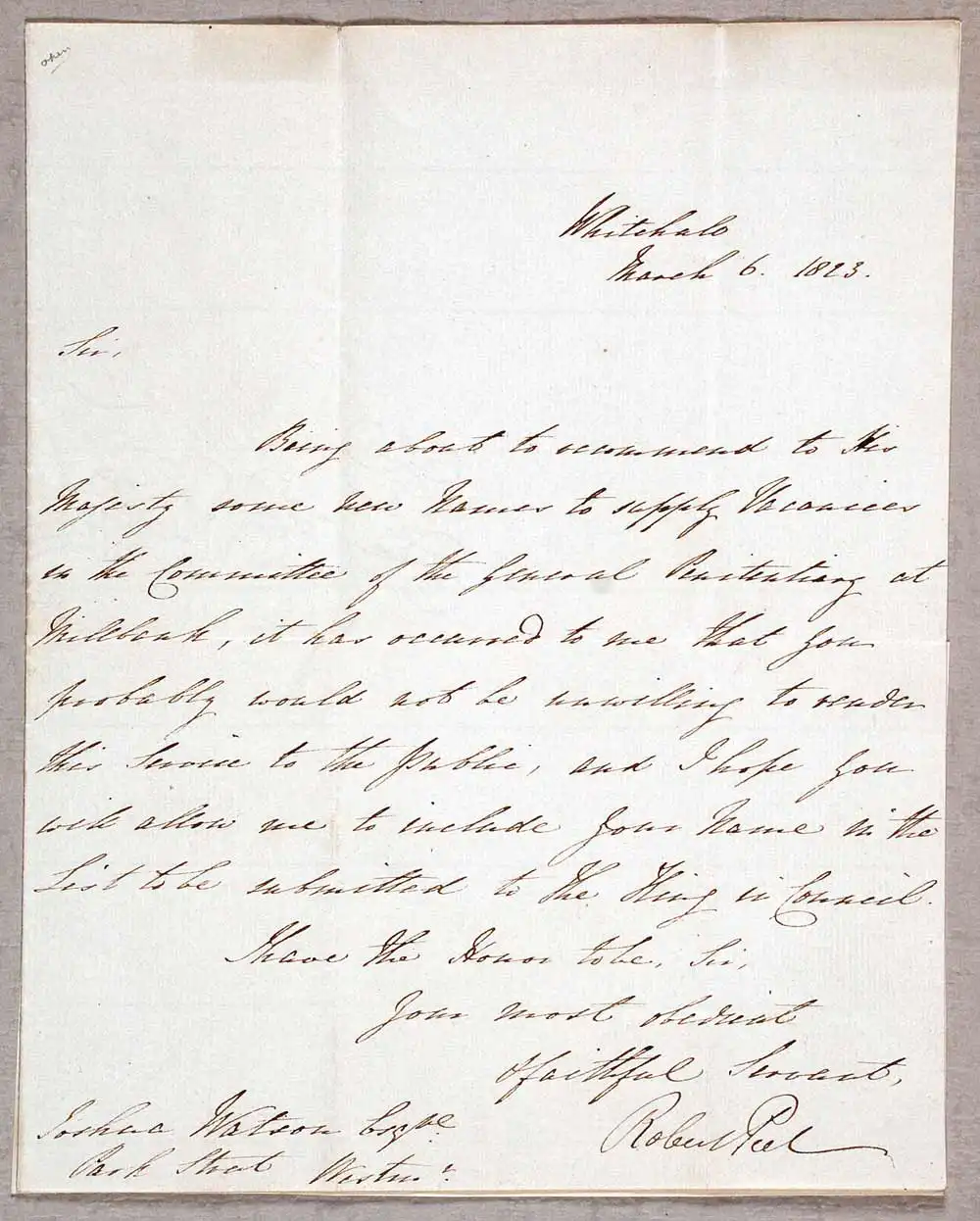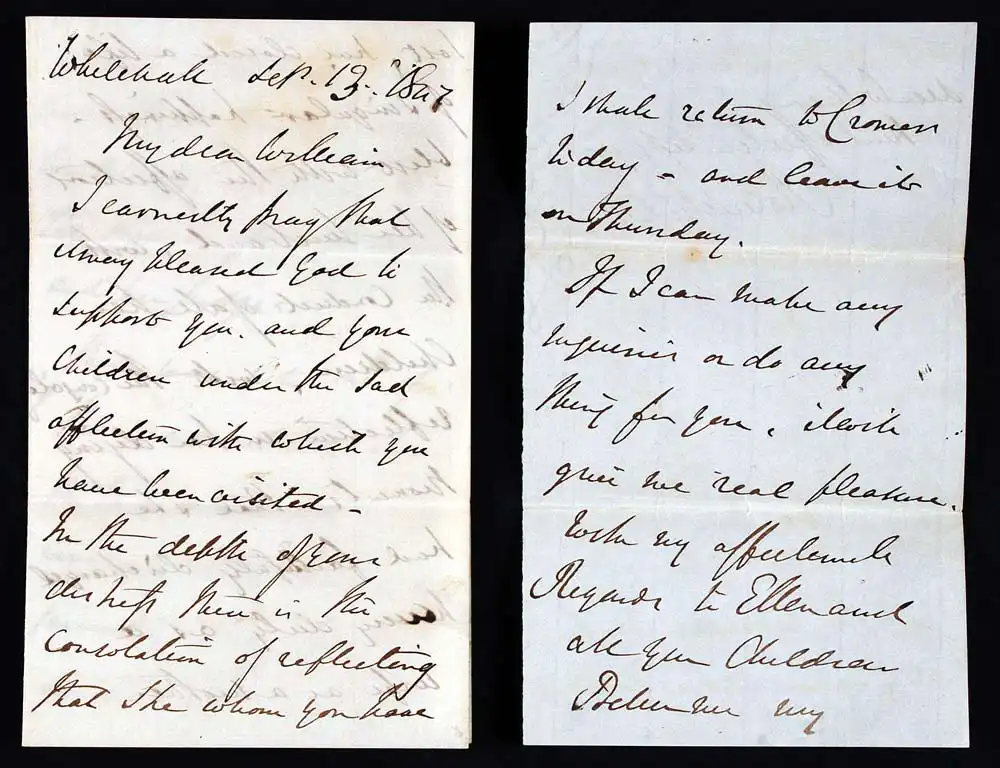
Letter signed. Sir Robert Peel (1788–1850) to Joshua Watson, Esq., Whitehall, 6 March 1823.
A Conservative statesman, Sir Robert Peel served as Prime Minister of Great Britain from 1834 to 1835, and again from 1841 to 1846. As Home Secretary he was especially well-known for his reorganization of the London Police Force, which were subsequently often called ‘Peelers’ and ‘Bobbies’ after him. During his last year as Prime Minister, Peel abolished the protectionist Corn Laws, a move that brought a significant increase in free trade.
Peel’s letter exhibited here was to the philanthropist and merchant Joshua Watson (1771–1855), known as ‘the best layman in England’ due to his many charitable pursuits. As such, Peel was hopeful that Watson would be interested in one of the vacancies in the ‘Committee of the General Penitentiary at Millbank’. ‘[It] has occurred to me’, wrote Peel, ‘that You probably would not be unwilling to render this Service to the Public, and I hope you will allow me to include Your Name in the List to be submitted to the King in Council’.
